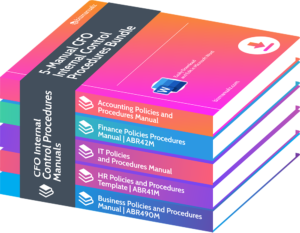What Challenges Face the New CFO?

The role of a Chief Financial Officer (CFO) is crucial in any organization, and new CFOs may encounter various challenges as they assume their responsibilities. Collaboration with other executives and a deep understanding of the industry landscape contribute to the CFO’s success in driving financial excellence within the organization. What Challenges Face the New CFO?
What is a New CFO?
A “new CFO” typically refers to an individual who has recently assumed the role of Chief Financial Officer (CFO) within an organization. The CFO is a key executive responsible for overseeing the financial aspects of a company and providing strategic financial leadership. When we refer to a “new CFO,” we are highlighting that this individual is in the early stages of their tenure in the CFO position.
It’s important to note that the specific challenges and priorities for a new CFO can vary based on the organization’s industry, size, and current financial situation. A successful new CFO combines financial expertise with effective leadership skills to drive positive changes and contribute to the overall success of the organization.
Key Aspects of a New CFO to Consider
The new CFO plays a multifaceted role, encompassing strategic planning, team leadership, technology integration, effective communication, and collaboration with other executives. Success in these key aspects contributes significantly to the CFO’s ability to drive financial excellence and support the organization’s overall objectives.
Here are some key aspects and considerations related to a new CFO:
- Onboarding and Transition: A new CFO goes through an onboarding process to familiarize themselves with the organization’s financial structure, business operations, and corporate culture. They transition into their role by gaining insights into existing financial practices and building relationships with key stakeholders.
- Assessment and Analysis: In the initial phase, a new CFO assesses the current financial health of the organization. This involves analyzing financial statements, budgetary processes, risk management strategies, and other aspects of the company’s financial framework.
- Strategic Planning: The new CFO contributes to strategic planning discussions, aligning financial goals with overall business objectives. They may collaborate with other executives to shape the organization’s long-term financial strategy.
- Building and Leading Teams: A new CFO is often involved in building and leading finance teams. This includes hiring and developing talent to ensure the finance department has the skills and expertise needed to support the organization’s financial goals.
- Implementing Financial Systems: Depending on the organization’s needs, a new CFO may be involved in implementing or optimizing financial systems and technologies. This could include adopting advanced accounting software, analytics tools, or other solutions to enhance financial processes.
- Communication and Transparency: Establishing effective communication channels with stakeholders, including the executive team, board of directors, and investors, is crucial. The new CFO works to ensure transparency in financial reporting and fosters trust in the organization’s financial management.
- Addressing Challenges: A new CFO may face specific challenges, such as adapting to the company’s unique industry dynamics, addressing existing financial issues, and implementing changes to enhance financial performance.
- Collaboration with Other Executives: Collaboration with other C-suite executives, such as the CEO, COO, and CIO, is essential. The CFO works closely with these leaders to integrate financial considerations into broader organizational strategies.
Common Challenges New CFOs often Face
A new CFO must navigate challenges with a combination of financial acumen, strategic thinking, adaptability, and effective communication. Some common challenges that new CFOs often face include:
- Financial Leadership: The CFO serves as the financial leader of the organization, overseeing all financial functions and providing strategic financial guidance to the executive team and the board of directors. They play a pivotal role in shaping the financial direction of the company.
- Financial Strategy and Planning: Developing and implementing a robust financial strategy that aligns with the overall business objectives can be challenging. New CFOs need to understand the company’s financial health and create plans for sustainable growth.
- Risk Management: Identifying, assessing, and mitigating financial risks is a key responsibility. This includes market risks, regulatory risks, and operational risks. New CFOs need to establish effective risk management practices to protect the organization.
- Data Management and Analytics: Leveraging data for decision-making is increasingly important. New CFOs may face challenges in implementing advanced analytics and data-driven insights to enhance financial forecasting and reporting.
- Technology Integration: Integrating new technologies into financial processes, such as adopting advanced financial systems and automation tools, can be a complex task. New CFOs need to ensure that technology investments align with organizational goals.
- Budgeting and Forecasting: The CFO is responsible for budgeting processes and financial forecasting. This includes analyzing financial data to make informed predictions about future financial trends and providing insights that contribute to effective decision-making.
- Cost Management: Controlling costs while maintaining operational efficiency is a perpetual challenge. New CFOs may need to evaluate and optimize expenses across various departments to improve profitability.
- Compliance and Regulatory Changes: Staying abreast of ever-changing financial regulations and ensuring compliance is a continuous challenge. New CFOs need to navigate complex regulatory environments and implement processes to address compliance requirements.
- Talent Management: Building and leading a high-performing finance team is critical. New CFOs may face challenges in talent acquisition, retention, and development to ensure that the finance function has the necessary skills and expertise.
- Global Operations: CFOs in organizations with international operations may face challenges related to currency exchange, cross-border taxation, and managing financial operations in diverse locations.
- Financial Reporting and Transparency: Communicating financial information clearly and transparently to stakeholders, including investors, analysts, and the board, is a significant responsibility. New CFOs need to ensure accurate and timely financial reporting.
- Economic Uncertainty: Economic fluctuations and external uncertainties can impact financial stability. New CFOs must be adept at scenario planning and adjusting financial strategies to navigate economic challenges.
- Economic Analysis: Monitoring economic trends and conducting thorough economic analyses help the CFO anticipate potential impacts on the organization. This involves scenario planning and adapting financial strategies to navigate economic uncertainties.
- Investor Relations: Building and maintaining relationships with investors and analysts is essential for organizations with publicly traded stocks. The CFO communicates financial performance, strategic initiatives, and growth prospects to the investment community.
- Mergers and Acquisitions: If the organization is involved in mergers, acquisitions, or divestitures, CFOs may face challenges in integrating financial systems, managing due diligence, and ensuring a smooth transition.
Successfully addressing these challenges requires a combination of financial expertise, strategic thinking, effective communication, and adaptability to change. Experienced mentorship and a thorough understanding of the organization’s industry and specific challenges can also contribute to a new CFO’s success.
New CFOs Transitioning from a Large Enterprise to a Smaller Business?
Transitioning from a large enterprise to a smaller business as a new Chief Financial Officer (CFO) involves adapting to a different organizational context and addressing unique challenges. Here are key considerations for a CFO making this transition:
- Organizational Culture: Smaller businesses often have a more entrepreneurial and agile culture. The new CFO should understand and adapt to the cultural nuances of the smaller organization, fostering collaboration and a hands-on approach.
- Resource Constraints: Smaller businesses may have limited financial and human resources. The CFO must be adept at maximizing efficiency and managing resources effectively to support financial goals.
- Diverse Roles and Responsibilities: In smaller businesses, executives, including the CFO, may wear multiple hats. The new CFO should be prepared to take on diverse responsibilities beyond traditional finance roles, such as operations management or strategic planning.
- Strategic Focus: Smaller businesses often require a more hands-on and strategic approach. The CFO should actively contribute to the development and execution of the company’s overall strategy, aligning financial goals with business objectives.
- Adaptability: Smaller businesses may experience rapid changes and shifts in priorities. The CFO should be adaptable and able to pivot quickly in response to market dynamics, customer needs, and other factors impacting the business.
- Risk Management: Assessing and managing risks is critical, especially in smaller businesses with less room for error. The CFO should implement robust risk management practices and contingency plans to mitigate potential challenges.
- Communication and Collaboration: Communication is often more direct and informal in smaller organizations. The new CFO should foster open communication channels and collaborate closely with other leaders to ensure a unified approach to financial and business goals.
- Technology Integration: Smaller businesses may have different technology infrastructures and may be in various stages of digital transformation. The CFO should assess existing systems and determine how technology can be leveraged for efficiency and growth.
- Financing and Capital Structure: The financing landscape for smaller businesses can differ significantly from that of large enterprises. The CFO should explore financing options suitable for the organization’s size, considering factors like venture capital, small business loans, or alternative funding sources.
- Regulatory Compliance: Smaller businesses may still need to comply with regulatory requirements, but the regulatory environment can be different. The CFO must ensure compliance with applicable regulations and stay informed about any industry-specific compliance standards.
- Stakeholder Relationships: Building relationships with stakeholders, including investors, customers, and suppliers, is vital. The CFO should understand the importance of these relationships in the context of the smaller business environment.
- Entrepreneurial Mindset: Embracing an entrepreneurial mindset is crucial in a smaller business. The CFO should be proactive, innovative, and willing to take calculated risks to drive the company’s financial success.
Successfully navigating this transition requires a blend of financial expertise, adaptability, and an understanding of the unique challenges and opportunities present in smaller business environments. Building strong relationships and contributing strategically to the organization’s growth are key elements for a CFO making this shift.
New CFO Challenges
Any organization needs a Chief Financial Officer (CFO), and when they take on their duties, new CFOs may run into a number of obstacles. The CFO’s ability to promote financial excellence within the company is aided by cooperation with other executives and a thorough awareness of the market.
















Leave a Reply